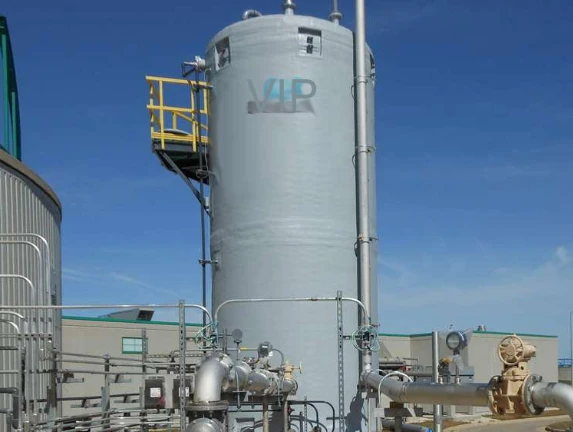
-
 Afrikaans
Afrikaans -
 Albanian
Albanian -
 Amharic
Amharic -
 Arabic
Arabic -
 Armenian
Armenian -
 Azerbaijani
Azerbaijani -
 Basque
Basque -
 Belarusian
Belarusian -
 Bengali
Bengali -
 Bosnian
Bosnian -
 Bulgarian
Bulgarian -
 Catalan
Catalan -
 Cebuano
Cebuano -
 China
China -
 China (Taiwan)
China (Taiwan) -
 Corsican
Corsican -
 Croatian
Croatian -
 Czech
Czech -
 Danish
Danish -
 Dutch
Dutch -
 English
English -
 Esperanto
Esperanto -
 Estonian
Estonian -
 Finnish
Finnish -
 French
French -
 Frisian
Frisian -
 Galician
Galician -
 Georgian
Georgian -
 German
German -
 Greek
Greek -
 Gujarati
Gujarati -
 Haitian Creole
Haitian Creole -
 hausa
hausa -
 hawaiian
hawaiian -
 Hebrew
Hebrew -
 Hindi
Hindi -
 Miao
Miao -
 Hungarian
Hungarian -
 Icelandic
Icelandic -
 igbo
igbo -
 Indonesian
Indonesian -
 irish
irish -
 Italian
Italian -
 Japanese
Japanese -
 Javanese
Javanese -
 Kannada
Kannada -
 kazakh
kazakh -
 Khmer
Khmer -
 Rwandese
Rwandese -
 Korean
Korean -
 Kurdish
Kurdish -
 Kyrgyz
Kyrgyz -
 Lao
Lao -
 Latin
Latin -
 Latvian
Latvian -
 Lithuanian
Lithuanian -
 Luxembourgish
Luxembourgish -
 Macedonian
Macedonian -
 Malgashi
Malgashi -
 Malay
Malay -
 Malayalam
Malayalam -
 Maltese
Maltese -
 Maori
Maori -
 Marathi
Marathi -
 Mongolian
Mongolian -
 Myanmar
Myanmar -
 Nepali
Nepali -
 Norwegian
Norwegian -
 Norwegian
Norwegian -
 Occitan
Occitan -
 Pashto
Pashto -
 Persian
Persian -
 Polish
Polish -
 Portuguese
Portuguese -
 Punjabi
Punjabi -
 Romanian
Romanian -
 Russian
Russian -
 Samoan
Samoan -
 Scottish Gaelic
Scottish Gaelic -
 Serbian
Serbian -
 Sesotho
Sesotho -
 Shona
Shona -
 Sindhi
Sindhi -
 Sinhala
Sinhala -
 Slovak
Slovak -
 Slovenian
Slovenian -
 Somali
Somali -
 Spanish
Spanish -
 Sundanese
Sundanese -
 Swahili
Swahili -
 Swedish
Swedish -
 Tagalog
Tagalog -
 Tajik
Tajik -
 Tamil
Tamil -
 Tatar
Tatar -
 Telugu
Telugu -
 Thai
Thai -
 Turkish
Turkish -
 Turkmen
Turkmen -
 Ukrainian
Ukrainian -
 Urdu
Urdu -
 Uighur
Uighur -
 Uzbek
Uzbek -
 Vietnamese
Vietnamese -
 Welsh
Welsh -
 Bantu
Bantu -
 Yiddish
Yiddish -
 Yoruba
Yoruba -
 Zulu
Zulu
fiberglass flange
Understanding Fiberglass Flanges Properties, Benefits, and Applications
Fiberglass flanges are integral components used in various industrial applications, particularly within piping systems where durability, corrosion resistance, and lightweight materials are essential. As industries evolve, the demand for innovative materials has led to the increasing use of fiberglass (or fibreglass) in structural components, and flanges are a prime example of this trend.
What is a Fiberglass Flange?
A fiberglass flange is a type of connection point used in piping systems. It serves to connect two pieces of pipe or a pipe to a fitting, allowing for future modification or disassembly of piping systems. Unlike traditional stainless steel or carbon steel flanges, fiberglass flanges are made from a composite material that consists of glass fibers reinforced by a resin matrix. This unique construction endows fiberglass flanges with several distinct qualities that make them ideal for certain applications.
Properties of Fiberglass Flanges
1. Corrosion Resistance One of the most significant advantages of fiberglass flanges is their exceptional resistance to corrosion. Traditional metal flanges can degrade over time when exposed to harsh chemicals or saline environments. In contrast, fiberglass does not rust or corrode, making it suitable for the chemical processing and marine industries.
2. Lightweight Fiberglass is considerably lighter than metal, which simplifies the handling and installation process. This is particularly beneficial in applications where weight is a critical factor, such as in aerial piping systems or installations requiring frequent adjustments.
3. Thermal Insulation Fiberglass materials also exhibit excellent thermal insulating properties. This is advantageous in applications involving hot fluids, as it minimizes heat loss and improves energy efficiency while preventing burns or heat transfer to adjacent components.
4. Low Maintenance The durability of fiberglass flanges contributes to lower maintenance costs. Unlike metal flanges that require regular inspections and replacements due to wear and tear, fiberglass components often have a longer lifespan, reducing the overall maintenance burden.
Benefits of Using Fiberglass Flanges
The benefits of choosing fiberglass flanges over traditional metal options are manifold
fiberglass flange

- Cost-Effectiveness Although the initial cost might be higher for fiberglass materials compared to some metals, their longevity and reduced maintenance needs lead to lower lifetime costs. Companies can save on replacement parts and labor over time.
- Easy Installation Due to their lightweight nature, fiberglass flanges can be installed quickly and with less manpower, which can lead to labor savings and faster project completion times
.- Customizability Fiberglass can be molded into various shapes and sizes, allowing for customized flange dimensions that meet specific engineering requirements. This adaptability is particularly useful in bespoke projects or unique installations.
Applications of Fiberglass Flanges
Fiberglass flanges find application across a variety of industries, including
- Chemical Processing In facilities where corrosive materials are transported, fiberglass flanges offer a safe and reliable connection that minimizes the risk of leaks and system failures.
- Water Treatment Many water treatment plants utilize fiberglass flanges due to their resistance to corrosive substances found in water and sludge.
- Marine Applications The maritime industry benefits from fiberglass flanges, which withstand harsh saltwater environments and reduce the risk of deterioration.
- Pulp and Paper Industry Here, fiberglass components resist the corrosive effects of chemicals used in the processing of wood fibers into paper.
Conclusion
In conclusion, fiberglass flanges represent a significant advancement in piping technology, offering a combination of light weight, durability, and resistance to corrosion that is hard to match. As industries continue to search for sustainable and efficient materials, fiberglass flanges will likely see increased adoption, reinforcing their role as essential components in modern engineering solutions. Whether in chemical processing, marine settings, or infrastructure projects, these versatile components serve as a testament to the evolving capabilities of composite materials in industrial applications.









